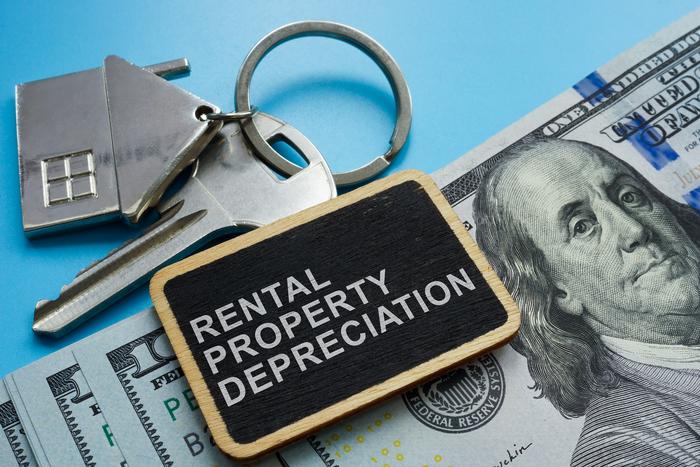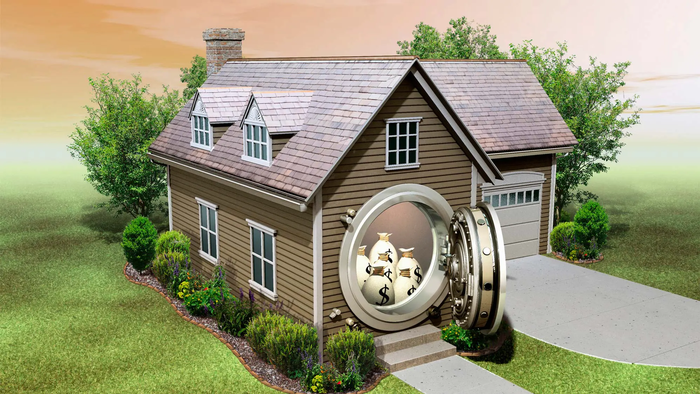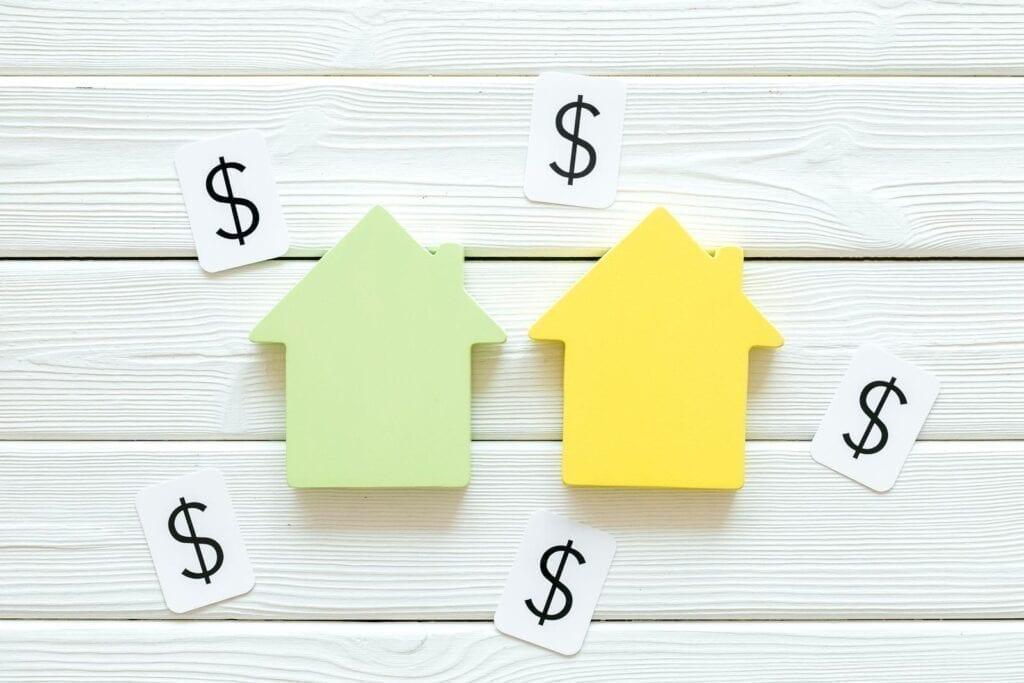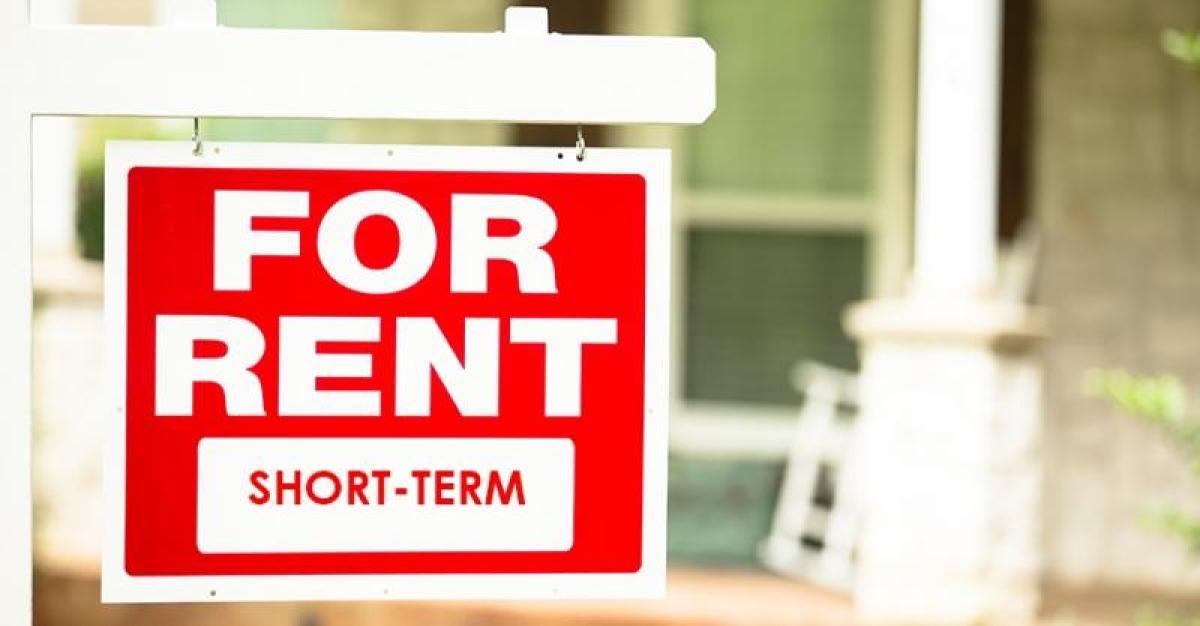Quick: How much could I get?
If you’re either selling your home or thinking about it, then one of the first things going through your mind is "How much could I get?" This article will get into that, but first, let's address the elephant in the room... as surprising as it may sound, no one really knows (but they kind of do). Yep, no one can stop someone who really, really wants your home from putting in a cash offer at twice the valuation of other homes in the area. That said, there is a science behind pricing homes and you can work with an agent to arrive at a more realistic valuation (something more bankable than waiting around for Rich Uncle PennyBags to show up).
You're not alone in your desire to get a maximized ROI from your home investment - everyone in the neighborhood shares this goal. The good news is that learning how to make the case for your valuation (what to highlight or what not to necessarily lean on expectation-wise) can help you arrive more rapidly at a solid return. Beyond listing price itself, there are some pro tips on boosting the attention that your home can get. We'll share some of those with you as well here, but it's important to emphasize that before it gets into the hands of the appraiser or ultimate buyer, only you and your agent can really assess the potential value of your home.
TIP: Get professional insight... if you don't have an agent helping you... then you're going in alone.
Truth No. 1: You need to set the price right the first time.
Historically, homes that are over (or underpriced) when first listed, ultimately sell at a lower price. Let that sink in, because this is a case that real estate pros try and land home... and there's a reason. If you underprice your home, then it becomes obvious to the buyer market that you’ll sell for less - unless you generate a bidding war. On the flip side, your home gets more attention in the first few weeks after you put it on the market. So if it’s overpriced, you’ll lose exposure to buyers who are true prospects and you’ll find yourself on a series of price reductions that end up at a below-market price.
Unlike smaller-dollar items, people are watching (often for months or years), looking for trends in your neighborhood. So while you may not have had a lot of direct inquiries about your home, they're out there and they're watching everything you and your neighbors do... looking for signs of distress and opportunity. But that's okay. You can use these optics to your advantage by listing your home at a reasonable valuation from the start and sticking to it. This will help to reduce unreasonable offers that waste your time and works toward firming up your negotiating stance.
Truth No. 2: Your home will end up selling at market price.
Most homeowners want to set their price without regard to the market. They'll approach it emotionally... thinking of all those memories attached to the space, all the work put in, and so on. And yes, while these could be factors that affect the price over time, this just isn't what the home buyer is thinking about. They're focused on their story (not yours), their opportunity (not yours) and the market valuation of your home (not your own). Again, that's okay as long as you can wrap your head around the idea that you can achieve your own goals by better packaging your home (productizing it) as a story that suits your buyers' goals.
Your agent will be doing this rather heavy-handedly, walking them through your home, selling them on all the ways it can become their story. But what your agent cannot do, is price your home in a range that will move (the market price). Frankly, if your neighbors' homes are listed and selling at 1x price, then your home is almost inevitably going to sell at 1x price (not 1.2x or 1.5x). Most homeowners go in with the mindset that if they wait out the market, the buyer profile will change and this just isn't the case. That buyer you thought really wanted your home, will end up buying the home down the street and while they're moving in, you'll be starting all over again with another buyer prospect.
What is market price?
It may not be what you think it is. Market price ends up as the price your home is most likely worth (future purchase expectation) and it is arrived at using historical purchases (from yesterday or before). That is to say, it has more to do with the past and future, than the present. If 10 homes immediately around yours sold and/or are expected to sell at $350,000 then, unless other factors significantly change the comparison models (square footage goes up or down, number of rooms go up or down, a new roof was added, etc), then your home's base valuation will likely start at around $350,000. Of course, there's a lot more that goes into it, but that's the gist. Let's expand on this:
- Historical pricing: Looking at what your home has sold for over time will tell you something about how the market has been valuing your home (specifically). While this public record plays a role in the neighborhood's valuation itself (whether or not this is a "hot, localized market"), this also speaks volumes about how your home fits into that market. For instance, if your home has traditionally sold under the local market's average value, then unless you make a solid case for why your home should now be purchased over the neighborhood's average value.
- Neighborhood: Homebuyers want a neighborhood that matches their lifestyle. If they have children, then the reputation of the school district could be critical to them. If they’re young professionals, then close proximity to entertainment might be first on their list. While you may not yet know who your buyer is, having a diverse collection of area amenities that you're highlighting will certainly help sell your valuation case. Most often, it's not that a new school has popped up or a newly commemorated park, rather a savvy agent that has joined your team who knows how to market them.
- Comparable home sales: You need to consider what other similar homes in your area have sold for recently. You can look at other sale prices and get a feel for whether your home should sell for more, less or about the same as others. Most homeowners either don't have access to these numbers or are simply too scared to review them, but if you're heading into the market, you'll fare better going in armed with a good understanding of your position among your peers. Get an updated neighborhood Comp from your local listing expert - it's an invaluable tool.
- Location: Even nestled among amazing neighbors, a home will sell for less if it's on a busy corner. If yours is the home with the cell tower in the back or on the flip side to that coin, your's is the home with the amazing view, then it will affect your listing price. It may not be one single factor and it could even be a collection of countering factors such as the house in the gated community, but on the busy intersection, but with the larger corner lot (and so on). This is where having a specialist that can sell the case will come in handy. Just know that these sorts of things can and do factor in.
- Size and condition: Size has a lot to do with price and without much question, a 2,500 square-foot home will probably list for more than a 2,000 square-foot home, but time is an important element too. If you’ve done a lot of updating, then your home will likely enjoy a higher valuation than a home that has had nothing done to it since the 80's. While this may seem obvious, you might be surprised to learn that the majority of home sellers aren't reading articles like this one here, they aren't doing basic market research and aren't working with an agent. Instead, they're waiting around for someone with a lot of cash who doesn't do their market homework (that's a limited audience).
Truth No. 3: The final arbiter of your home’s price is the appraiser.
Okay, so we've gone through a litany of ways to find (and in some cases bolster) your home's estimated valuation. But if and when your buyer heads in to apply for a mortgage, the mortgage company will, in turn, hire an appraiser to identify a more mathematically and historically-based valuation for your home. If the appraised value ends up coming in below the sales price, then you’ve got a problem. Even if you "sell" the buyer during negotiations, the deal could fall through if the buyer is financing the purchase.
So, the truth about setting your price is that it should be rooted in tangible, demonstrable math (unless you've got Rich Uncle PennyBags dropping cash in your hands, of course). Your valuation should be based on a fair amount of research, and to get this research, you'd do well to confer with the experts and to land quickly on a reasonable listing price that fits within the model of the regional market for homes that are similar to yours. As mentioned above, hitting the market hard with a reasonable price out of the gate will move your listing more quickly, but ultimately, it'll also improve your buyer's chances of qualifying the purchase with the ultimate valuation expert: the appraiser.
offrs collects and provides topical insights, statistics, reviews, humor and best practices gathered from real estate professionals and consumer homeowner industry peers. If you're a broker or agent interested in learning more about seller lead generation (real estate) or who's who among the top real estate lead generation companies, visit www.offrs.com or continue to browse our growing collection of industry articles at www.offrs.net.





















